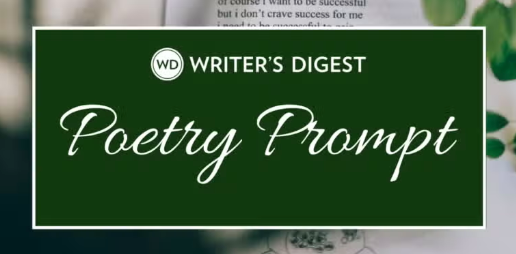Chant Royal: Poetic Forms
Poetic Form Fridays are made to share various poetic forms. This week, we look at the chant royal, a 60-line poetic challenge.
For this week's form, we look at one that's a little on the longer side. The chant royal is a 60 liner that uses rhymes and refrains. So yes, for those wondering, the chant royal is a French form that's been around at least since the 14th century.
Here are the guidelines:
- Five 11-line stanzas followed by a five-line envoy
- The 11-line stanzas have this rhyme scheme: ababccddedE
- The envoy has this rhyme scheme: ddedE
- The final line of every stanza is a refrain
- Lines can be any consistent (for the poem) length, but it's most common if they're eight or 10 syllables
Since this form asks you to rotate the same five rhymes across 60 lines, pick rhymes you can maintain throughout. The "d" rhyme, in particular, is used 18 times in the poem!
*****
Play with poetic forms!
Poetic forms are fun poetic games, and this digital guide collects more than 100 poetic forms, including more established poetic forms (like sestinas and sonnets) and newer invented forms (like golden shovels and fibs).
*****
Here’s my attempt at a Chant Royal:
The Rest, by Robert Lee Brewer
It was a dark and stormy night
in the beginning of his scene,
but that opening was not right,
so he cleared the computer screen,
and he struggled to find a way
to introduce a sunny day
that produced feelings of great fear
on an afternoon that was clear--
like some horrific horror test
that pulled the readers very near,
though everybody knows the rest:
how after darkness comes a light
and all that's dirty will be cleaned,
the writer knows that he must write,
whether on paper or a screen,
all the feelings that he can't say
on a completely normal day
about the dreams he holds most dear,
the ones he should reveal right here,
though the threat of a simple jest
prolongs his agonizing fear,
and everybody knows the rest,
like a tree knows to hold a kite,
not because inherently mean,
but every branch is oh so slight
and made to clutch strings sight unseen
as if to catch is how it plays
in all the nights and all the days
filled with charmed mirth and mirthless cheer
of everyday and unique fear;
pray, be the prey, my praying guest,
of what must seem clearly unclear
when everybody knows the rest
is but a swallow after bite
by teeth so white and very clean
that they reflect the full moon's light
before the waning wanes it lean,
and the leaning both lies and lays
depending upon all the ways
one can listen and one can hear
whether one's far or one is near
to the thing they think they'll request,
like a bottle of pop or beer,
for everybody knows the rest
could be settled in a bar fight
or some other overdone scene,
like on a dark and stormy night,
which is never quite what I mean
when my new scenes are led astray
like a solitary sun ray
in a forest clearing that's clear
of everything but one small deer
that wants a reprieve from its quest
for a long life lived without fear,
but everybody knows the rest:
how you can't hear the things right here
without a dedicated ear
to bequeath words on his behest
as behooves his behaving we're
the everybody knows the rest.






